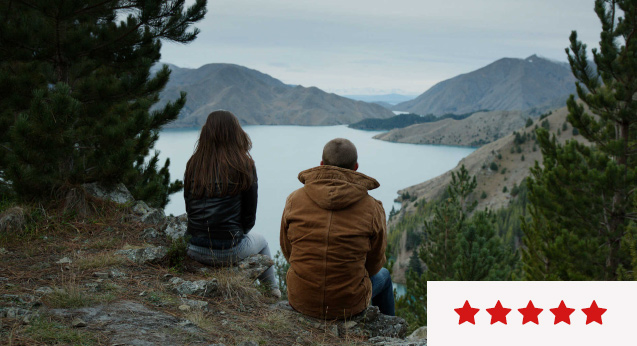Stray fortifies hope in the breadth and ambition of NZ film

With an unmatched synthesis of attentive direction and rigorous aesthetic intent, Stray fortifies hope in the breadth and ambition of New Zealand film. Set during a permeating southern winter, the film follows tortured strangers Jack (Kiernan Charnock) and Grace (Arta Dobroshi) recalibrating their lives in the mountains of remote Central Otago. In this exquisite debut from writer/director Dustin Feneley, the two find themselves in a charged, intricate intimacy.
It’s terrifically bracing to watch a character study that doesn’t patronise its audience. With a textural pacing at times vaguely reminiscent of Chantal Akerman’s Jeanne Dielman, Stray renders the meticulous details of relentless isolation. In one scene, Jack grimaces as he runs water over a wound on his palm, then patches himself up. Is there anything more stupidly lonely than injuring yourself when no one else is around? Later, when Grace first stays the night, Jack makes up a bed for her, tenderly laying a sheet on the mattress; a small yet momentous gesture of effort and care he never afforded himself.
These poetic details are ever enriched by Sophie Durham’s expert production design and the phenomenal eye of cinematographer Ari Wegner. Natural light and soft shadows are expertly diffused to conjure winter’s aching fatigue. Fogged windows, crisp duvets, and worn leather dining chairs build on the film’s naturalistic tactility.
Carefully considering the relationship between masculinity and situation, New Zealand film history echoes throughout Stray. And yet, the perceptive contours shaped throughout the film truly do constitute a breath of fresh air.

















